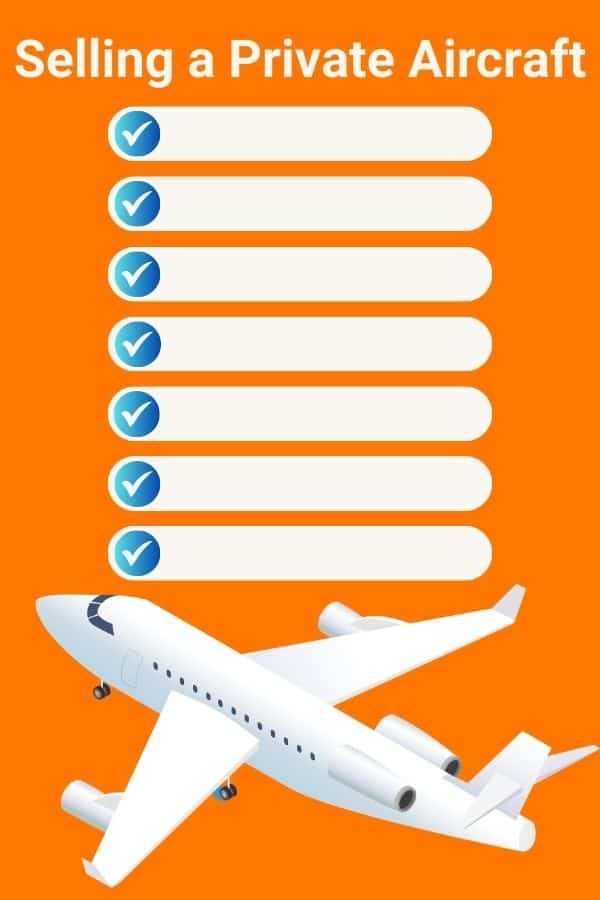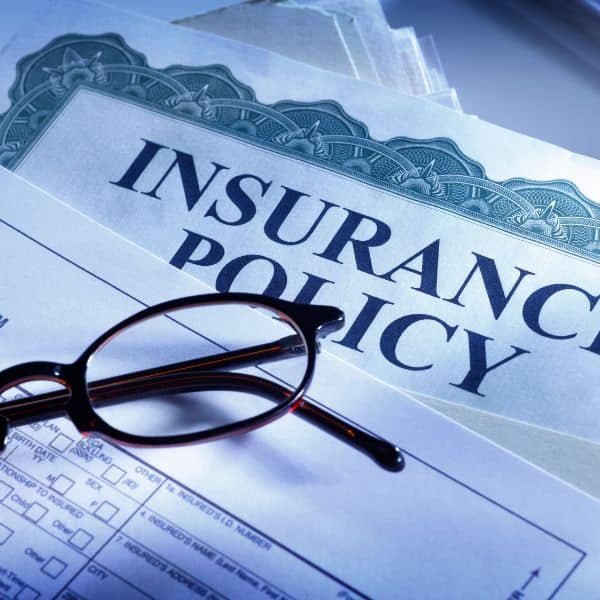Selling a private aircraft can be an exciting yet daunting endeavor. With the right approach, it can lead to a seamless transaction and a rewarding financial outcome. But what if you’re not aware of the potential pitfalls and challenges that lie ahead? This blog post will provide you with the essential information and guidance to navigate the process and avoid the common mistakes when selling your private aircraft. So, buckle up and let’s explore the journey of selling your private aircraft, ensuring a smooth sale from start to finish.
Table of Contents
Key Takeaways for Selling a Private Aircraft
- Accurately assess aircraft value, conduct market research and document damage history/maintenance records.
- Utilize multiple platforms for marketing & advertising. Create a professional presentation with high quality photos & descriptions.
- Engage an experienced broker, adhere to legal/regulatory requirements, verify buyer identity and use secure payment methods.
Not Properly Assessing Your Aircraft’s Value

An accurate assessment of your aircraft’s value plays a significant role in the selling process. Underpricing or overpricing can hinder negotiations with potential buyers and, ultimately, affect the purchase price. Many factors come into play when assessing your aircraft’s value, such as market research, damage history, and maintenance records.
In navigating the intricate realm of securing the optimal price when selling a private aircraft, the key lies in striking a delicate and well-calibrated balance that takes into account various factors, such as market trends, negotiating prowess, and a keen understanding of the unique value your private aircraft holds in the eyes of potential buyers.
Market Research
Understanding the current market trends and pricing for similar aircraft models can put you in a strong position to make informed decisions when selling a private aircraft. Insights into the dynamics of the aviation market and factors influencing aircraft values such as manufacturing costs and age can be obtained through thorough market research.
Armed with this knowledge, you can determine an appropriate pricing strategy for your aircraft. One that not only presents a compelling value proposition but also resonates with potential buyers who recognize its true worth.
Damage History and Maintenance Records
Your aircraft’s damage history and maintenance records play a pivotal role in determining its value. Buyers will scrutinize these details to assess the aircraft’s condition and make an informed purchase decision. A well-maintained aircraft with comprehensive records can command a higher price, while a damaged or poorly maintained one can significantly reduce its value.
Being transparent about your aircraft’s history and providing accurate maintenance records will instill confidence in potential buyers and facilitate a smooth transfer of aircraft ownership when selling a private aircraft.
Inadequate Marketing and Advertising When Selling a Private Aircraft

Visibility is key when selling a private aircraft. Inadequate marketing and advertising can limit your aircraft’s exposure, resulting in fewer potential buyers and a longer sale process. To attract the right audience, it’s vital to utilize multiple platforms and create a professional presentation that showcases your aircraft’s unique selling points.
We’ll outline a few strategies to help your aircraft differentiate itself in the competitive business aviation market when selling a private aircraft.
Visibility is key when selling a private aircraft. Inadequate marketing and advertising can limit your aircraft’s exposure, resulting in fewer potential buyers and a longer sale process. To attract the right audience, it’s vital to utilize multiple platforms and create a professional presentation that showcases your aircraft’s unique selling points.
Utilizing Multiple Platforms

Leveraging various platforms, such as online listings, social media, and aviation publications, can help you reach a wider audience of potential buyers when selling a private aircraft. By casting a wide net, you increase the chances of finding the right buyer who appreciates your aircraft’s value and is willing to pay top dollar for it.
Instead of confining your promotional efforts to a singular platform, consider diversifying your marketing efforts across a spectrum of channels. By strategically expanding your outreach strategy, you can enhance the visibility of your aircraft, ensuring a broader and more nuanced presence that resonates with diverse audiences across different platforms, thereby optimizing your chances of capturing the attention of potential buyers and stakeholders in the aviation market.
Professional Presentation
Capturing potential buyers’ attention and leaving a lasting impression requires a professional presentation. Here are some tips to make your aircraft stand out among the competition:
- When selling a private aircraft, be sure to have professional quality photos taken with the interior properly staged.
- Provide detailed descriptions of the interior and exterior features.
- Ensure your aircraft is clean and free of personal items, this helps potential buyers to envision the aircraft as their own, rather than belonging to someone else.
- Convey a sense of pride in ownership, it lets the buyer know you’ve taken care of your private aircraft and that it will be delivered to them in good order.
- When selling a private aircraft, invest time and effort into creating a polished presentation that does justice to your aircraft’s value.
By following these tips, you have the opportunity to substantially elevate the likelihood of not only drawing the attention of potential buyers but also ensuring a successful sales transaction for your used aircraft.
Neglecting Pre-Purchase Inspections When Selling a Private Aircraft

Skipping pre-purchase inspections can be a recipe for disputes and delays in the sale process when selling a private aircraft. Most buyers will require an inspection as these inspections are essential in revealing any potential issues with the aircraft. To avoid surprises and ensure a transparent transaction, it’s best to choose a licensed maintenance facility for the inspection and address any issues that may arise when selling a private aircraft.
In the ensuing discussion, we will delve into the multifaceted ways in which comprehensive pre-purchase inspections play a pivotal and indispensable role in the overall process of selling a private aircraft and facilitating a successful transaction.
Choosing a Licensed Maintenance Facility
A licensed maintenance facility is important for conducting thorough and accurate inspections of your aircraft. These facilities have the expertise and equipment to identify potential issues and provide a comprehensive assessment of the aircraft’s condition. By entrusting your aircraft to a licensed facility, you can have peace of mind knowing that the inspection is reliable and adheres to industry standards. Generally the buyer will select the inspection facility, but sellers can advance their suggestions as well by recommending a facility that they believe to be reliable and trustworthy.
Addressing Deficiencies
Taking care of deficiencies identified during the pre-purchase inspection can smooth out the process when selling a private aircraft. It’s essential to negotiate with the buyer based on the inspection results, either by lowering the price or completing repairs as the seller. This not only helps in closing the deal but also ensures that both parties are satisfied with the final outcome.
Failing to Engage an Aircraft Broker When Selling a Private Aircraft

While it’s possible participate in selling a private aircraft independently, failing to engage an aircraft broker can result in a longer sale process and potential legal issues. An experienced broker can provide valuable market insights, handle negotiations, and assist with legal matters, making the selling process more efficient and less stressful.
In the forthcoming discussion, we will thoroughly explore and analyze the pivotal role that selecting the right broker and establishing a detailed agreement play in a seamless sale process for your aircraft. These critical components not only foster a transparent and efficient transaction but also contribute significantly to building trust and confidence with potential buyers, thereby enhancing the overall success of the sale.
Broker Selection When Selling a Private Aircraft
The pivotal role of a reputable broker in ensuring the success of selling a private aircraft cannot be overstated. Such brokers bring to the table a wealth of indispensable skills, in-depth industry knowledge, and a network of invaluable connections, collectively working to not only optimize the sale price of your aircraft but also to streamline and expedite the entire selling process.
When in the process of choosing the most suitable broker for your specific needs, it is paramount to conduct a thorough evaluation. Look for brokers with a well-established presence in the industry, boasting a proven track record of successful transactions. Additionally, seek out brokers who are capable of providing expert guidance and support throughout every phase of the sale. By aligning yourself with such a reputable broker, you are not merely securing a facilitator for the transaction but also gaining access to a wealth of expertise and resources that can significantly enhance the overall outcome of your aircraft sale.
Broker Agreement
A broker agreement outlines the terms and conditions of the broker’s services, ensuring a smooth sale process. This legally binding contract should detail the broker’s commission, the scope of services provided, and any other relevant information.
Before signing, thoroughly reading and understanding the agreement is important as it lays the groundwork for a successful partnership with your broker, ensuring you recognize any potential buyer signs.
Overlooking Legal and Regulatory Requirements for Selling a Private Aircraft

Overlooking the critical aspects of legal and regulatory compliance when selling a private aircraft can have far-reaching consequences, potentially resulting in penalties, unwarranted delays, and unnecessary complications throughout the sale process. To preemptively address and mitigate such challenges, it is imperative to diligently prepare and organize the requisite documents, including but not limited to the Bill of Sale and comprehensive aircraft records.
One of the linchpins of a seamless transfer of ownership when you are selling a private aircraft is strict adherence to the regulatory framework set forth by the Federal Aviation Administration (FAA). Complying with FAA regulations not only ensures the legality of the transaction but also plays a pivotal role in averting any potential pitfalls that may arise during the sale. These regulatory requirements are designed to uphold the integrity and safety of the aviation industry, and navigating them meticulously is integral to the successful and hassle-free completion of the sale process.
In our subsequent discussion, we will explain why adherence to these legal and regulatory requisites is of paramount importance, shedding light on the benefits it brings to the table and further emphasizing its indispensable role in safeguarding the interests of all parties involved in the aircraft sale.
Preparing Necessary Documents
Documents such as the Bill of Sale and the Aircraft Registration Application are essential when selling a private aircraft. These documents serve as evidence of the sale and purchase transaction, and their submission to the FAA is a crucial step in the transfer of ownership.
Proper preparation and submission of all necessary documents can ward off potential legal issues and speed up the sale process.
Compliance with Federal Aviation Administration (FAA) Regulations
Compliance with FAA regulations is vital in ensuring a smooth transfer of ownership and avoiding potential legal issues when selling a private aircraft. These regulations govern various aspects of the sale process, such as registering the aircraft in the legal name of the new owner, completing and submitting required forms, and transferring ownership through a signed bill of sale.
Compliance with these regulations guarantees a legally sound sale, providing protection to both buyer and seller from possible liabilities.
Ignoring Buyer Due Diligence When Selling a Private Aircraft

Buyer due diligence is a critical aspect of the aircraft sale process that should not be overlooked. Ignoring this step can result in fraud, financial loss, and other complications. To protect yourself and your investment, it’s essential to verify the buyer’s identity and ensure secure payment methods.
We’ll discuss the process of performing buyer due diligence to protect your interests. Often times, your reputable broker will be bringing your buyer to the table so much of these verifications will already be performed for you.
Verifying Buyer’s Identity
Conducting background checks on potential buyers is an essential step in preventing fraudulent transactions. By verifying the buyer’s identity and assessing their history, you can ensure that the transaction is legitimate and secure.
Keep in mind, diligent scrutiny plays a significant role in safeguarding your investment and facilitating a successful sale.
Ensuring Secure Payment Methods
Secure payment methods, such as escrow services and bank wire transfers, can protect both the buyer and seller during the transaction. These services act as a neutral third party, holding the funds until the transfer of ownership is complete. By employing secure payment methods, you minimize the risk of fraud and ensure a smooth, hassle-free transaction.
Disregarding Post-Sale Responsibilities

After the sale of your aircraft, there are still responsibilities to fulfill. Disregarding these post-sale tasks can lead to disputes, complications, and potential liabilities. To ensure a smooth handover and avoid any issues, it’s crucial to update insurance policies and prepare the aircraft for transfer. Let’s get into greater detail about these responsibilities.
Updating Insurance Policies
Informing your insurance provider about the sale and transfer of your aircraft is essential to avoid potential liabilities. Make sure to cancel your existing policy and confirm that the new owner has arranged for their own coverage.
Prompt updates to your insurance policies can absolve you of any responsibility related to the aircraft, thereby averting any possible legal issues post sale.
Preparing the Aircraft for Closing
Once the contract has been executed, the inspection has been completed, and discrepancies resolved, it’s time to prepare your aircraft for closing. In preparation for closing you should remove all personal belongings, clean the aircraft, and ensure that all necessary documents are in order.
Following these steps can facilitate a smooth handover and project an image of professionalism and diligence to the new owner so that both parties are happily satisfied with the sales process and outcome.
Summary
Selling a private aircraft can be a complex and challenging journey. Common mistakes, if avoided, can prove instrumental in streamlining the entire process, minimizing potential hurdles, and maximizing the likelihood of a prosperous sale. By avoiding these mistakes and following the guidance provided in this blog post, you can navigate the process with confidence and achieve a successful sale. Armed with the right information, you not only bolster your understanding of the nuances inherent in the aircraft sale process but also empower yourself to make informed decisions that contribute to a smoother and more rewarding selling experience.
Frequently Asked Questions
What is the commission of an aircraft broker?
The commission of an aircraft broker can vary and is typically negotiated as either a percentage of the final sale price or as a fixed amount. The exact percentage or amount can depend on various factors, including the type and value of the aircraft, the complexity of the sale, and the specific terms agreed upon between the seller and the broker.
In the aviation industry, it’s common for aircraft brokers to charge a commission that ranges from approximately $50,000 to as much as $250,000 or more.
It’s important for both sellers and brokers to clearly define the terms of the commission in a written agreement before initiating the sales process. This agreement typically outlines the responsibilities of the broker, the duration of the agreement, and the specific commission structure, among other details.
What to consider before buying a plane?
Before buying a plane, consider your budget and research the aircraft you are interested in. Make sure to review logbooks, look into financing, inspections, insurance, certifications, and flight planning. Additionally, factor in maintenance costs, hangar fees, and unexpected expenses.
How do I go about selling a private aircraft?
Complete the necessary paperwork and contact the FAA Registry to process the sale of your aircraft. Provide all logs and records of the aircraft as agreed, and keep a copy for yourself. Keep in mind that the process may vary based on the specific circumstances of your sale and the regulations in your region. Consulting with aviation professionals, such as brokers, attorneys, or industry experts, can provide valuable guidance throughout the selling process
What factors affect the value of my aircraft?
Market trends, damage history, maintenance records and the aircraft’s age all affect its value. Knowing this can help you understand your plane’s market value.
